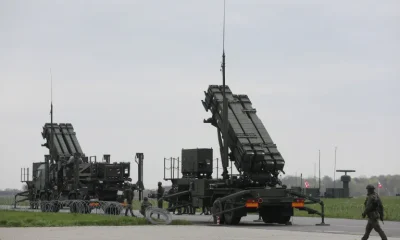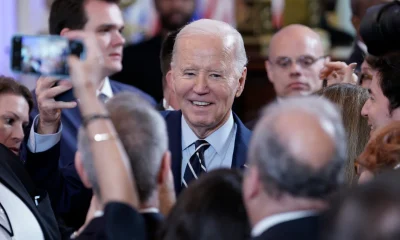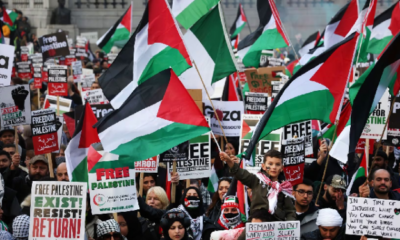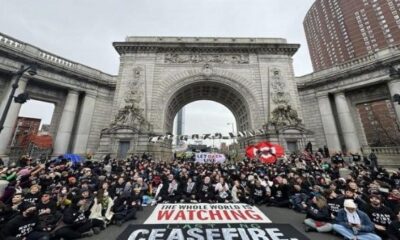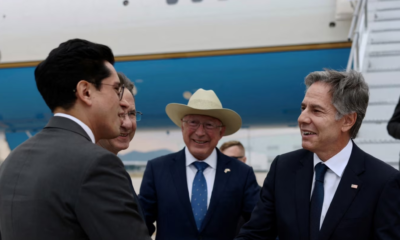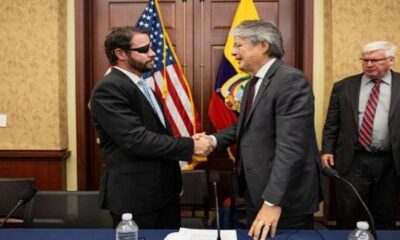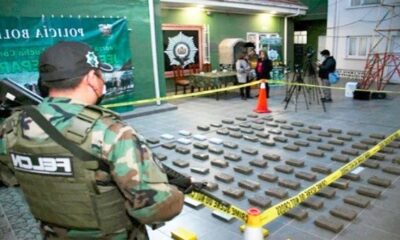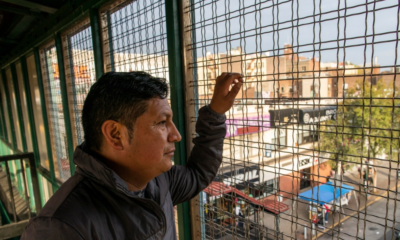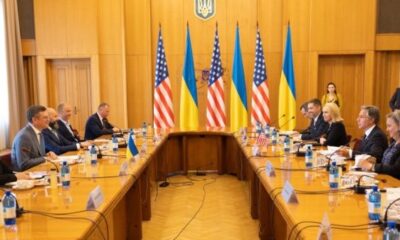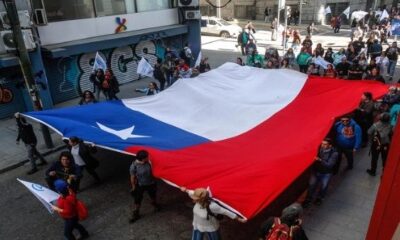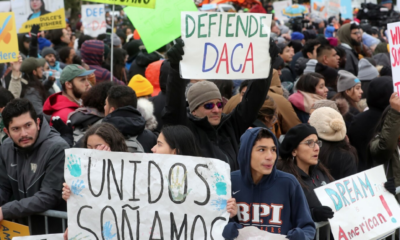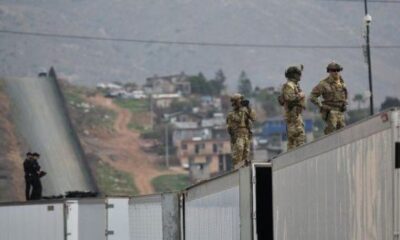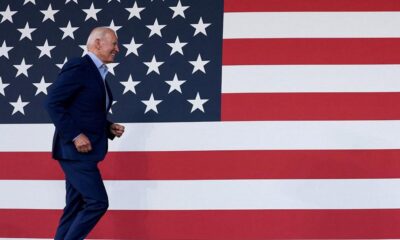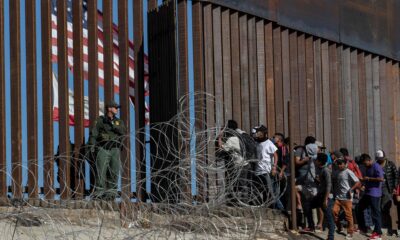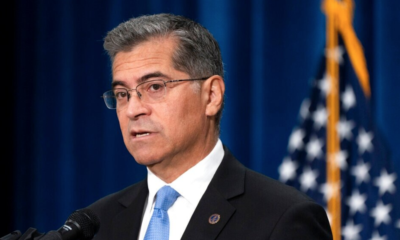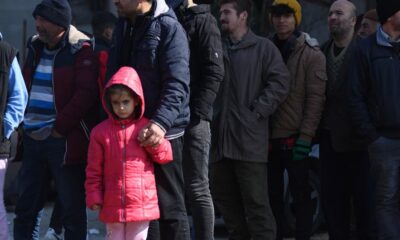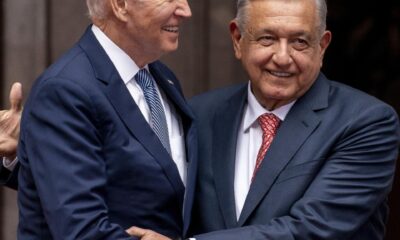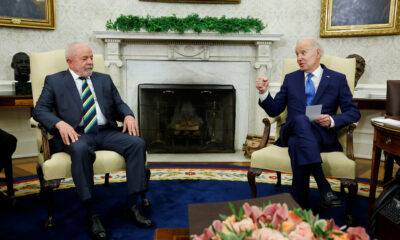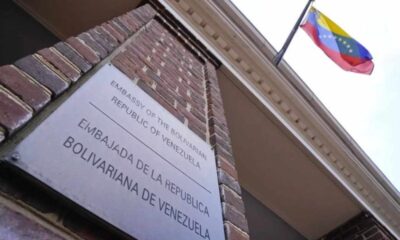International
Inflation clouds ‘Black Friday’ kickoff of US holiday shopping season
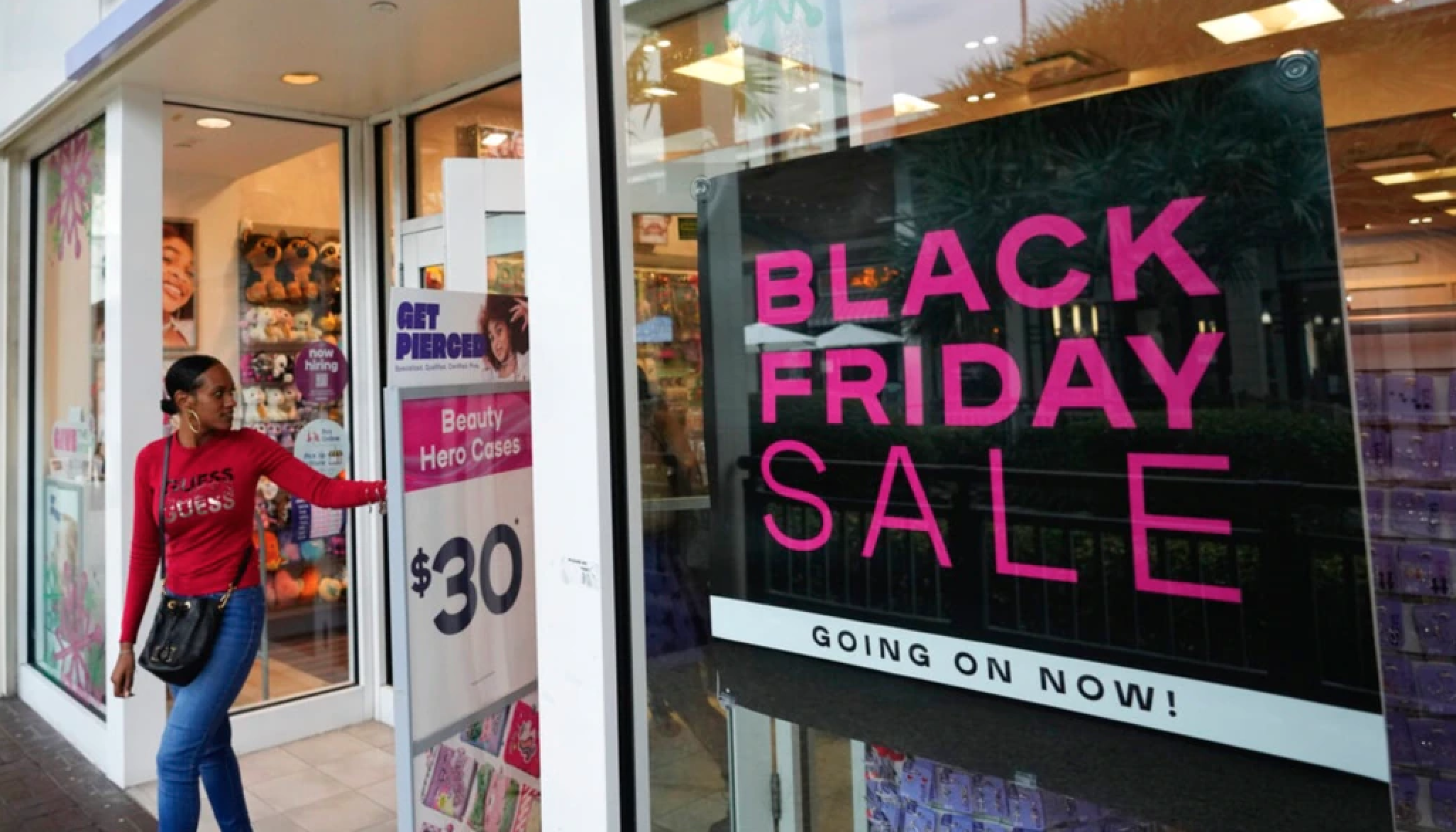
| By AFP | John Biers |
Retailers unveiled a trove of fresh seasonal promotions Friday, as they try to coax sales from reticent shoppers whose holiday cheer has been tempered by inflation and worries over a softening economy.
“Black Friday,” the unofficial start of the US holiday shopping season, announced itself with the annual day-after-Thanksgiving deluge of online promotions and early store openings.
But industry experts have been cautious about this year’s prospects, in light of price pressures that have exacerbated concerns about an oversupply of goods.
A year ago, retailers faced product shortfalls in the wake of shipping backlogs and factory closures related to Covid-19. To avert a repeat, the industry front-loaded its holiday imports this year, leaving it vulnerable to oversupply at a time when consumers are cutting back.
“Supply shortages was yesterday’s problem,” said Neil Saunders, managing director for GlobalData Retail, a consultancy. “Today’s problem is having too much stuff.”
Saunders said retailers have made progress in reducing excess inventories, but oversupply will mean deep discounts in many categories, including electronics, home improvement and apparel.
Online shoppers spent $5.3 billion on Thanksgiving Day itself, according to an Adobe report early Friday, up 2.9 percent from a year ago.
Higher costs for gasoline and household staples like meat and cereal are a nationwide issue, and they do not burden everyone equally.
“The lower incomes are definitely hit worst by the higher inflation,” said Claire Li, senior analyst at Moody’s. “People have to spend on the essential items.”
Diminishing savings
Leading forecasts from Deloitte and the National Retail Federation project a single-digit percentage rise in sales, but this is unlikely to exceed the inflation rate.
Adobe has forecast an overall holiday sales increase of 2.5 percent, less than a third of the level from last year. Besides inflation, Adobe cited higher Federal Reserve interest rates and an uptick in brick-and-mortar shopping as factors.
European countries like Britain and France have been marking Black Friday for a few years now too, but with soaring inflation, merchants there face a similar dilemma.
“Retailers are desperate for some spending cheer but the worry is that it could turn out to be more of a Bleak Friday,” said Hargreaves Lansdown analyst Susannah Streeter.
US shoppers have remained resilient throughout the pandemic, often spending more than expected even when consumer sentiment surveys suggest they are in a gloomy mood.
Part of the reason has been the unusually robust state of savings, with many households banking government pandemic aid payments at a time of reduced consumption due to virus restrictions.
But that cushion is starting to whittle away. After hitting $2.5 trillion in excess savings in mid-2021, the benchmark fell to $1.7 trillion in the second quarter, according to Moody’s.
Accompanying this drop has been a rise in credit card debt visible in Federal Reserve data and anecdotally described by chains that also report more purchases made with food stamps.
Mixed picture
Recent earnings reports from retailers paint a mixed picture on consumer health.
Target stood on the downcast side, pointing to a sharp decline in shopping activity in late October, potentially portending a weak holiday season.
The big-box chain expects a “very promotional” holiday season, said Chief Executive Brian Cornell.
“We’ve had a consumer who has been dealing with very stubborn inflation for quarter after quarter now,” Cornell said on a conference call with analysts.
He added that customers are “shopping very carefully on a budget.”
But Lowe’s, another big US chain specializing in home-improvement, offered a different view, describing the same late-October period as “strong.”
“We are not seeing anything that feels or looks like a trade down or consumer pullback,” said Lowe’s Chief Executive Marvin Ellison.
Consumers like Charmaine Taylor, who checks airline websites frequently, are staying vigilant.
Taylor, who works in child care, has had her travel plans thwarted due to exorbitant plane ticket prices — and she is unsure of how much she can spend on family this year.
“I’m trying to give them some little gifts,” she said at a park in Harlem earlier this week. “I don’t know if I’ll be able to. Inflation is hitting pretty hard.”
International
DOJ and FBI officially deny Jeffrey Epstein ‘client list’ conspiracy theories
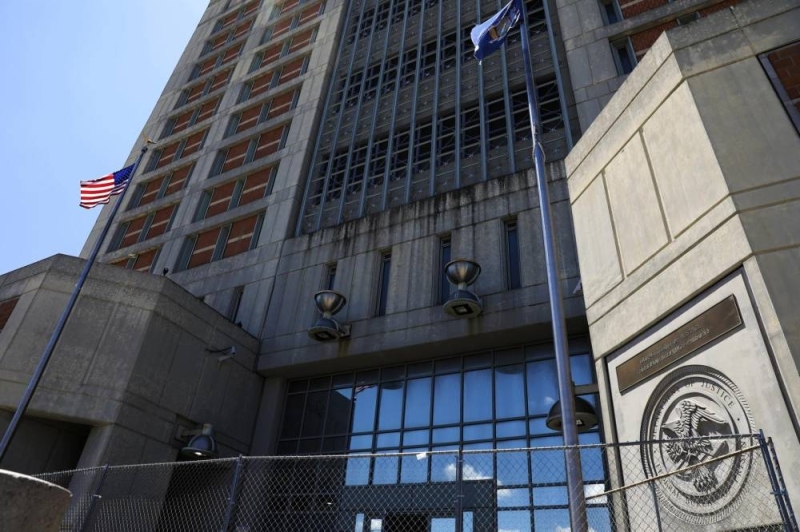
A U.S. Department of Justice (DOJ) and FBI investigation concluded that financier Jeffrey Epstein, accused of sex trafficking minors, did not maintain a “client list” for blackmail purposes and confirmed his death by suicide in a New York prison in 2019, according to reports from U.S. media on Monday.
The findings, detailed in a memo reviewed by Axios and ABC News, mark the first official denial of conspiracy theories alleging a list of influential personalities connected to Epstein and a possible murder to silence him.
The DOJ and FBI also reviewed several hours of video footage confirming that no one entered the area of the Manhattan jail where the 66-year-old billionaire took his own life while awaiting trial on charges of sex trafficking minors, aided by his associate Ghislaine Maxwell, who was prosecuted and convicted of similar crimes.
The evidence review was ordered by the Trump administration after officials like Attorney General Pam Bondi pledged to release files related to the federal government’s investigations into the case.
Epstein’s death prevented the trial from taking place, leading some in American society to demand that the Department of Justice make public the list of accomplices and clients, as well as flight logs of his private plane to the island he owned in the Virgin Islands, where some abuses reportedly occurred.
The new memo from the U.S. Justice Department warned that it will not release more investigation records and emphasized that one of its main “priorities” is “combating child exploitation and delivering justice to victims.”
“Perpetuating unfounded theories about Epstein serves none of these purposes,” the document states, according to ABC News.
International
Iranian president says Israel tried to assassinate him, warns U.S. against war
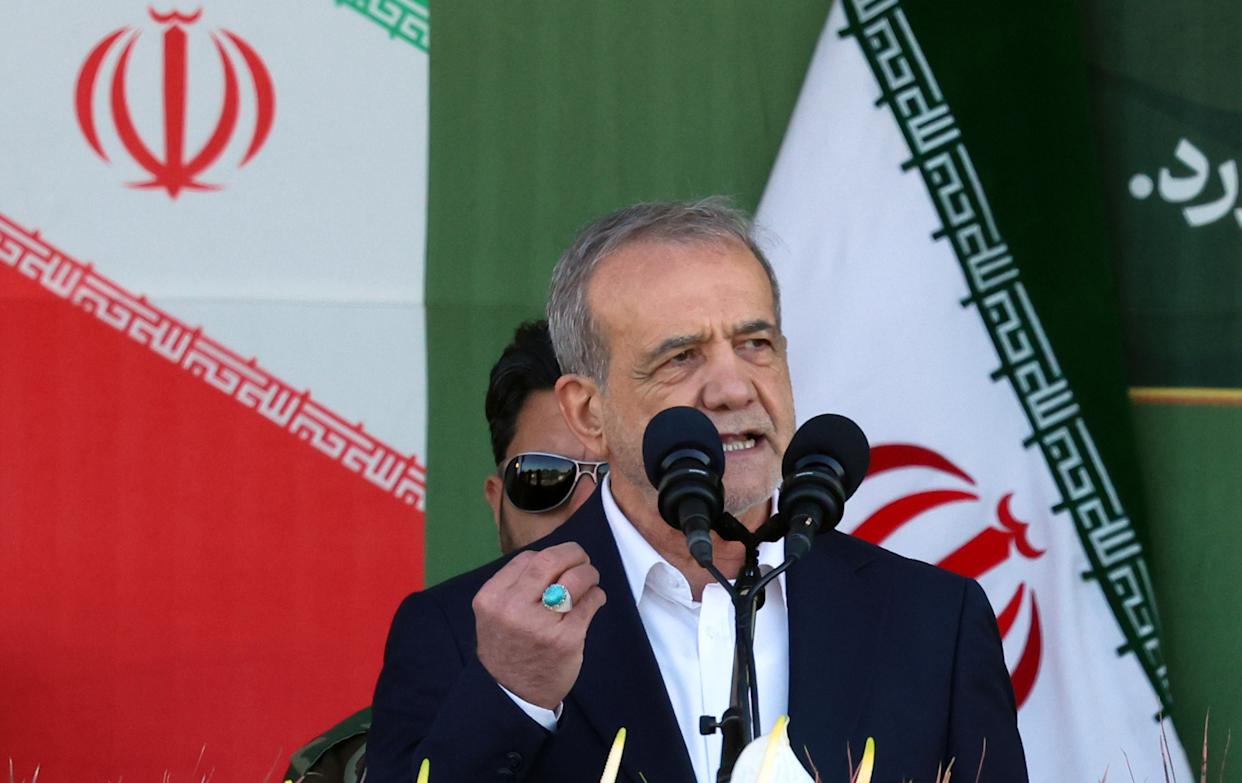
Iranian President Masoud Pezeshkian claims Israel attempted to assassinate him during a high-level meeting, but Iranian intelligence thwarted the plan, he revealed in an exclusive interview — not to a traditional news outlet, but to far-right journalist Tucker Carlson, a close ally of former U.S. President Donald Trump.
The interview was published last night on Carlson’s X account. Carlson anticipates criticism for conducting the interview but defends it by saying Americans need to understand the perspective of a country “we went to war with ten days ago, and maybe will again.”
When Carlson asks if Israel tried to kill him, Pezeshkian replies: “Yes, they tried, and acted accordingly, but they failed.” Asked for details, Pezeshkian explained: “It was during a meeting. We were discussing ways to move forward, but thanks to intelligence services and their clues, we knew they tried to bomb the area where we were gathered.”
He quickly clarified: “Of course, it was not the United States trying to end my life, it was Israel (…) I ask the U.S. not to be deceived by Netanyahu, not to be dragged into this kind of war,” a warning he repeats throughout the half-hour interview.
Relaxed in a chair, Pezeshkian answered all questions. On whether he will allow the return of International Atomic Energy Agency (IAEA) inspectors — after suspending cooperation last week — he said it is not ruled out but currently technically impossible.
“We have never been the ones to withdraw from inspections. We are ready to undergo those verifications, but unfortunately, due to illegal U.S. attacks on our nuclear sites and facilities, many parts and equipment have been severely damaged. So now we don’t have access to them,” he explained.
It is notable that Iran granted this interview to Carlson, a well-known isolationist within the Trump sphere, who, alongside ideologue Steve Bannon, opposes U.S. involvement in foreign wars that come at high economic, political, and human costs.
Carlson asked if Iran planned to assassinate Donald Trump or if it has “sleeper cells” ready to attack on U.S. soil. Pezeshkian dismissed both claims lightly: “That’s what Netanyahu wants you, the president of your country, to believe, but it’s false because Netanyahu has his own agenda—to push the U.S. into an endless war.”
International
Sheinbaum urges unity and respect after clashes over gentrification in Mexico City
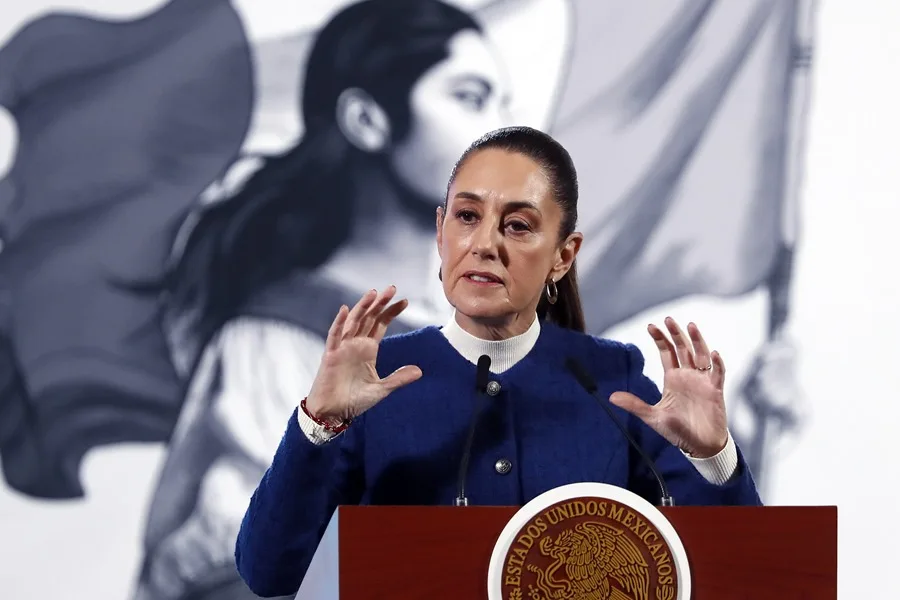
Mexican President Claudia Sheinbaum addressed the protests in Mexico City on Monday, which erupted over the weekend amid complaints of gentrification and urban inequality.
The demonstrations took place in the Condesa neighborhood, where protesters claim rising rents driven by an influx of foreigners have altered the daily lives of longtime local residents.
However, the protests escalated into clashes with local police and included discriminatory remarks toward officers and citizens.
In a strong message, Sheinbaum condemned hate speech and urged citizens to reject all forms of discrimination. “All Mexicans must clearly reject discrimination — no to racism, no to classism, no to xenophobia, no to machismo, no to discrimination. All human beings are equal and no one should be treated as less. (…) Discrimination is also a criminal offense.”
“Any man or woman who wants to live in Mexico City or anywhere in our country must respect us just as we must respect them. But these attitudes are not exclusive to foreigners living in Mexico, we also saw them in many marches last year,” the president added.
Regarding the violent incidents shared on social media, Sheinbaum said: “Gentrification is a phenomenon that must be addressed, but xenophobic behavior cannot be justified. That’s unacceptable. Anyone who comes to live in our country will be welcomed as long as they respect the laws, the rules, and appreciate the wonderful people of Mexico.”
She also highlighted Mexico’s long-standing tradition as an open and supportive country that has welcomed refugees and migrants from various nationalities during critical moments in the 20th century.
-

 International4 days ago
International4 days agoJulio César Chávez Jr. faces charges in Mexico after U.S. arrest
-

 International4 days ago
International4 days agoMexico’s president blasts ‘Inhumane’ U.S. migration law
-
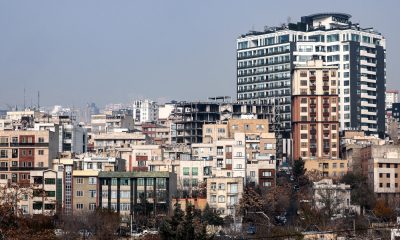
 International5 days ago
International5 days agoTehran airports resume operations as Iran lifts airspace closure
-
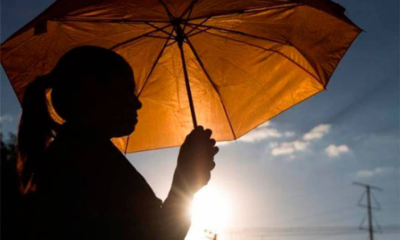
 International4 days ago
International4 days agoEurope faces a summer of heatwaves and wildfires, Red Cross warns
-

 International4 days ago
International4 days agoDenmark takes Trump’s Greenland threats seriously, rules out military annexation
-

 International5 days ago
International5 days agoMan attacks passengers with axe on german ICE Train
-

 International2 days ago
International2 days agoSalvadoran Day USA 2025 canceled amid fears of immigration raids
-

 International2 days ago
International2 days agoTexas Floods: Death toll rises to 68, dozens still missing
-

 International19 hours ago
International19 hours agoHonduras regrets U.S. decision to end TPS for 72,000 hondurans
-

 International19 hours ago
International19 hours agoIranian president says Israel tried to assassinate him, warns U.S. against war
-

 International19 hours ago
International19 hours agoGunman killed after shooting outside Texas Border Patrol Building
-

 International19 hours ago
International19 hours agoRussian ex-transport minister found dead after dismissal by Putin
-

 International19 hours ago
International19 hours agoBolsonaro thanks Trump for support amid Brazil coup trial
-

 International19 hours ago
International19 hours agoSheinbaum urges unity and respect after clashes over gentrification in Mexico City
-
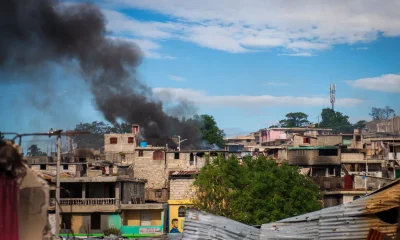
 International20 hours ago
International20 hours agoTrump ends TPS for haitians as gang violence surges in homeland
-
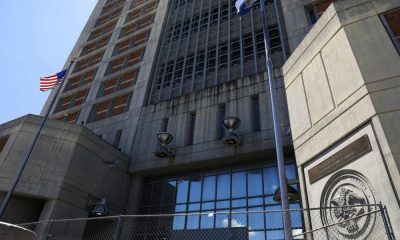
 International19 hours ago
International19 hours agoDOJ and FBI officially deny Jeffrey Epstein ‘client list’ conspiracy theories





















